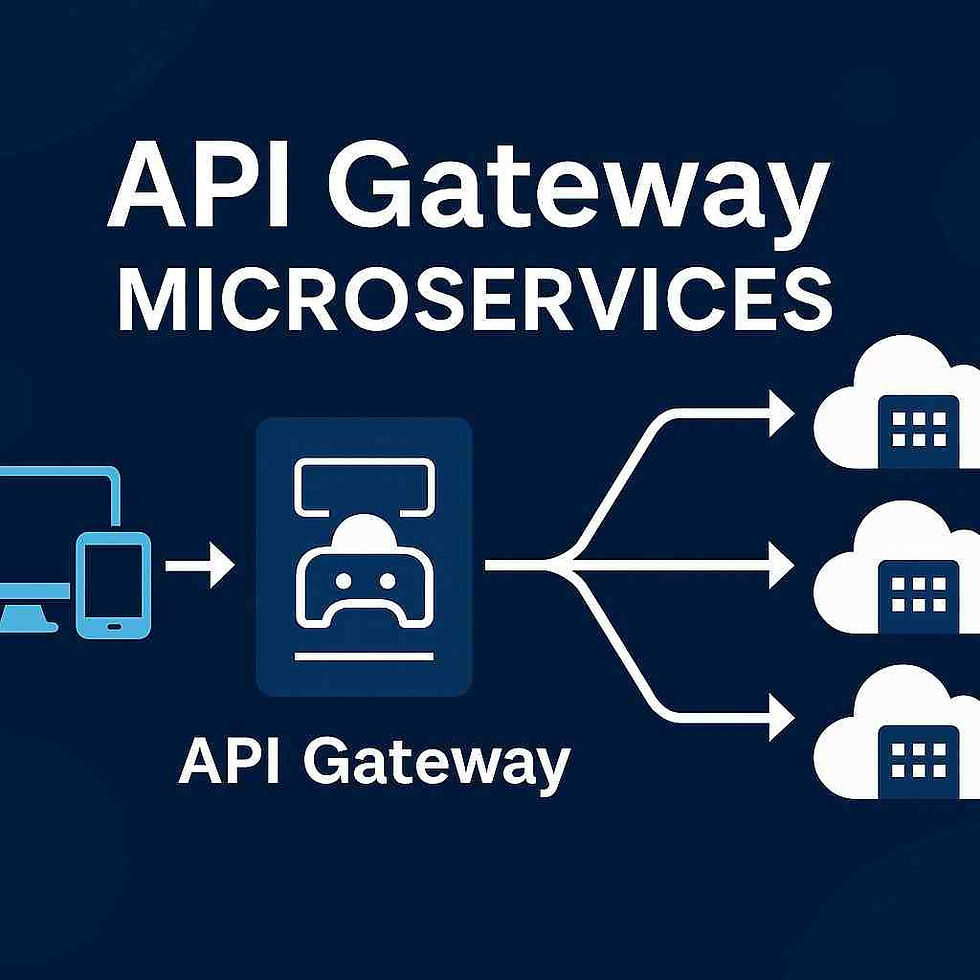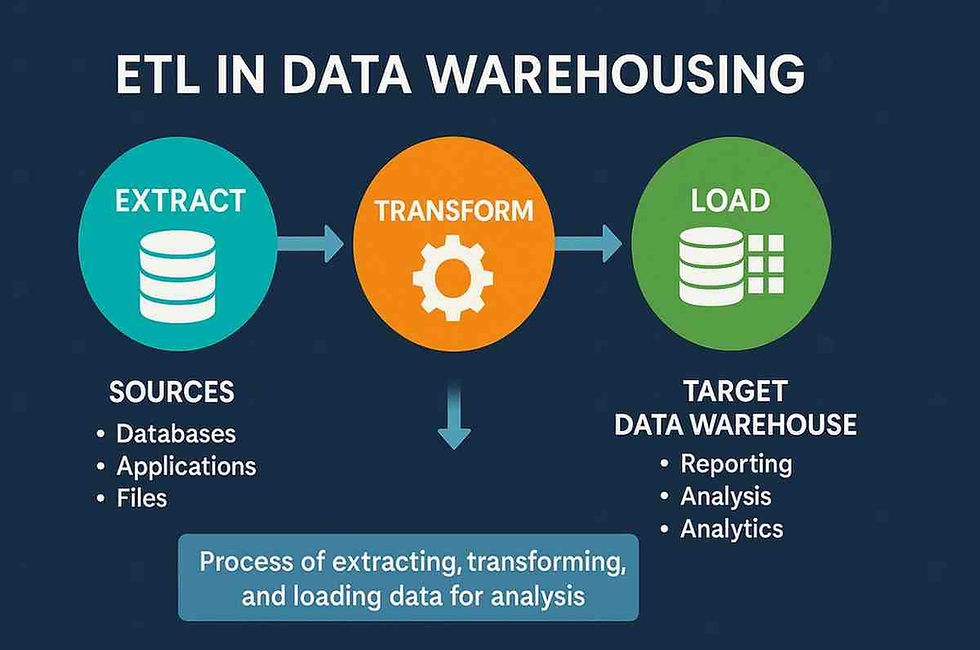Automation Testing Programs: Top Free Courses and Tools
- Gunashree RS
- Sep 21, 2024
- 7 min read
The demand for automation testing programs has surged in recent years as organizations strive to improve software quality and speed up the delivery cycle. With the rapid advancements in automation tools, testing frameworks, and CI/CD pipelines, automation testers have never been more in demand. However, learning automation testing doesn't have to come with a hefty price tag—many excellent free resources are available for beginners and seasoned testers alike.
In this detailed guide, we’ll explore the top free automation testing programs, courses, tools, and best practices for 2024 and beyond. Whether you’re interested in web, mobile, or API testing, this guide will help you navigate the world of automation testing, from beginner-friendly content to advanced tutorials on popular frameworks like Selenium, Cypress, and Jenkins.
What is Automation Testing?
Automation testing is a software testing technique that uses specialized tools to execute tests automatically, manage test data, and analyze test outcomes to validate the correctness and performance of the application. Unlike manual testing, where a human tester physically performs each test, automation testing allows testers to script tests that can be repeated over time with consistent results.
Automation testing is particularly valuable for:
Regression Testing: Ensuring that new code changes don’t break existing functionality.
Load and Performance Testing: Simulating heavy user traffic to assess how the system behaves under stress.
Cross-Browser Testing: Validating application functionality across different browsers and devices.

Why Automation Testing is Important
Automation testing is essential for modern software development for several reasons:
Efficiency and Speed: Automated tests run faster and more frequently than manual tests, making it easier to validate code changes and release software updates.
Reusability: Test scripts can be reused across different projects and testing environments, making them a cost-effective solution.
Increased Test Coverage: Automation allows teams to execute a large number of test cases across various platforms, devices, and browsers, ensuring broader coverage.
Early Bug Detection: Automated tests are integrated into continuous integration pipelines, catching bugs earlier in the development process and reducing the cost of fixing them later.
Consistency: Automated tests run the same way every time, minimizing human error and improving the accuracy of results.
Top Free Automation Testing Programs for 2024
If you’re looking to dive into automation testing or level up your existing skills, the following free courses will guide you through essential tools, frameworks, and best practices. These courses are popular among test engineers and are ideal for anyone looking to excel in the field of automation testing.
1. Setting a Foundation for Successful Test Automation
Instructor: Angie Jones
Overview: This course, offered by Test Automation University (TAU), focuses on establishing the right strategies for building a successful automation testing initiative. It emphasizes planning, collaboration, and setting up an automation culture before diving into tools and coding.
Why It's Important: With a failure rate in automation projects as high as 70%, this course is essential for managers, developers, and testers to ensure their efforts are not wasted.
Ideal For: All stakeholders involved in automation projects (managers, developers, product owners).
2. Web Element Locator Strategies
Instructor: Andy Knight
Overview: This course offers a deep dive into DOM (Document Object Model) exploration, teaching reliable strategies for identifying and interacting with web elements using CSS selectors, XPath, and other locator strategies.
Why It's Important: Correctly identifying web elements is a fundamental skill for automation testers using Selenium or Cypress, ensuring scripts remain stable and adaptable.
Ideal For: Testers working with web automation tools like Selenium and Cypress.
3. Java Programming
Instructor: Angie Jones
Overview: Aimed at beginners, this Java programming course teaches core programming concepts without focusing exclusively on automation. Instead, it helps learners build solid Java programming skills, which can later be applied to automation frameworks like Selenium.
Why It's Important: Java is one of the most popular programming languages in automation, and mastering it opens up various opportunities for automation engineers.
Ideal For: Beginners looking to learn Java programming with a future in automation testing.
4. Introduction to JavaScript
Instructor: Mark Thompson
Overview: JavaScript is becoming an increasingly popular language for automation testing due to tools like Cypress. This course covers the basics of JavaScript and prepares learners for JavaScript-based testing frameworks.
Why It's Important: As the demand for JavaScript automation tools grows, learning JavaScript will future-proof your career in test automation.
Ideal For: Testers new to JavaScript and those looking to work with modern testing frameworks like Cypress.
5. IntelliJ for Test Automation Engineers
Instructor: Corina Pip
Overview: IntelliJ is one of the most popular IDEs for Java development. This course teaches how to efficiently use IntelliJ for test automation projects, focusing on shortcuts, debugging, and refactoring.
Why It's Important: Learning how to use an IDE like IntelliJ can significantly boost productivity when working on automation scripts.
Ideal For: Automation testers using Java, especially those working with large projects.
6. Exploring Service APIs through Test Automation
Instructor: Amber Race
Overview: This course focuses on API testing, a crucial aspect of modern software testing. It teaches testers how to automate API tests and use the P.O.I.S.E.D. heuristic for thorough test coverage.
Why It's Important: API testing ensures backend systems work as expected, complementing front-end UI testing. As microservices architecture grows, API testing has become increasingly critical.
Ideal For: Testers interested in backend testing or working in API-heavy applications.
7. Selenium WebDriver with Java
Instructor: Angie Jones
Overview: Selenium WebDriver is one of the most widely used tools for web automation, and this course provides a comprehensive introduction to automating web applications using Selenium and Java.
Why It's Important: Selenium is the go-to tool for web automation, making it a must-learn framework for anyone involved in test automation.
Ideal For: Automation testers interested in browser automation and those who prefer Java.
8. Introduction to Cypress
Instructor: Gil Tayar
Overview: This course introduces Cypress, a fast-growing tool in the automation community, known for its ease of use, fast execution, and ability to automate modern web applications.
Why It's Important: Cypress is rapidly gaining popularity, especially for end-to-end testing in modern web apps built with frameworks like React and Angular.
Ideal For: Testers who want to explore a modern, JavaScript-based testing framework.
9. Cucumber with Java
Instructor: Giridhar Rajkumar
Overview: Cucumber is a popular tool for Behavior-Driven Development (BDD), and this course demonstrates how to use Cucumber with Java to write human-readable test cases that can be automated.
Why It's Important: BDD fosters better collaboration between technical and non-technical team members. Cucumber is essential for teams practicing BDD.
Ideal For: Automation testers in BDD projects or teams using Java.
10. Continuous Integration with Jenkins
Instructor: Aparna Gopalakrishnan
Overview: Jenkins is one of the leading CI/CD tools, and this course explains how to integrate automated tests into a Jenkins pipeline, ensuring continuous testing in software delivery.
Why It's Important: Continuous Integration and Continuous Deployment (CI/CD) are core practices in modern software development, and knowing how to set up automation tests in a Jenkins pipeline is crucial.
Ideal For: Automation testers working in agile environments that use CI/CD pipelines.
11. Devzery for API Testing
Overview: Devzery offers an AI-powered platform for API regression testing, emphasizing codeless automation and seamless CI/CD integration. This course introduces the core features and capabilities of Devzery, enabling testers to efficiently manage and automate API testing processes.
Why It's Important: With the increasing reliance on APIs in modern applications, understanding how to effectively test and automate API interactions is crucial for maintaining application quality and performance.
Ideal For: Testers focusing on API-heavy applications and looking to leverage automation for enhanced testing efficiency.
Key Tools and Technologies for Automation Testing
Selenium: The most widely used tool for browser automation, supporting multiple languages (Java, C#, Python) and browsers.
Cypress: A popular JavaScript-based tool for fast, reliable web application testing, especially in modern frontend frameworks.
Jenkins: A leading CI/CD tool that allows for automation testing as part of continuous integration pipelines.
Cucumber: A BDD framework that allows writing human-readable test cases that can be automated.
Postman: A tool for API testing, commonly used to test the backend services of web and mobile applications.
TestNG: A powerful testing framework for Java applications that integrates well with Selenium for more advanced test case management.
Best Practices for Automation Testing
Start Small, Scale Gradually: Begin by automating the most critical test cases. As confidence in automation grows, scale the automation suite to include regression tests, performance tests, and cross-browser tests.
Choose the Right Tools: Not all tools fit all projects. Evaluate your project's needs and select tools based on the technology stack, team expertise, and future scalability.
Integrate with CI/CD Pipelines: Integrating automated tests into your CI/CD pipeline helps ensure that bugs are caught early and do not make it into production.
Maintain Tests Regularly: Automated tests need to be maintained as the application evolves. Make sure your tests are reviewed and updated regularly to prevent flakiness.
Use Page Object Model (POM): For web automation, using POM allows for cleaner, more maintainable code by separating test scripts from web page implementations.
Parallel Execution: Running tests in parallel speeds up execution and is especially beneficial for large test suites in CI/CD pipelines.
Conclusion
Automation testing has revolutionized software development, allowing teams to deliver higher-quality products at a faster pace. With the wealth of free resources and courses available today, anyone can get started with automation testing, regardless of their background. Whether you are a beginner learning Java for the first time or an experienced tester diving into Cypress or Jenkins, the courses outlined in this guide will provide a solid foundation for your automation testing journey.
Key Takeaways
Automation testing improves speed, accuracy, and efficiency in software testing.
Free courses from Test Automation University cover a wide range of tools like Selenium, Cypress, and Jenkins.
Choosing the right tool and scaling tests gradually are essential for successful automation.
Integrating automation into CI/CD pipelines ensures continuous testing in agile environments.
Regular maintenance of automated tests prevents flakiness and ensures reliable test results.
Frequently Asked Questions
1. What is the best programming language for automation testing?
There isn’t a single “best” language, but Java, Python, and JavaScript are the most popular for automation testing due to the wide availability of frameworks like Selenium, Cypress, and TestNG.
2. Is automation testing difficult to learn?
Automation testing can be challenging, especially if you're new to programming. However, free courses and structured learning paths, like those provided by Test Automation University, make the process easier.
3. How can I integrate automation testing into CI/CD pipelines?
You can integrate automation tests into CI/CD pipelines using tools like Jenkins, CircleCI, or Travis CI. Most automation testing tools, like Selenium and Cypress, offer native or easy integration with these platforms.
4. How often should automated tests be run?
Automated tests should be run as frequently as possible, ideally after every code change as part of a continuous integration process.
5. What are the limitations of automation testing?
While automation testing offers many benefits, it can’t cover all test cases, especially those requiring human intuition, such as usability or exploratory testing.
6. What is the difference between Selenium and Cypress?
Selenium is a more mature tool with support for multiple browsers and programming languages, while Cypress is newer, faster, and specifically designed for modern JavaScript frameworks but is limited to Chrome.




Comments